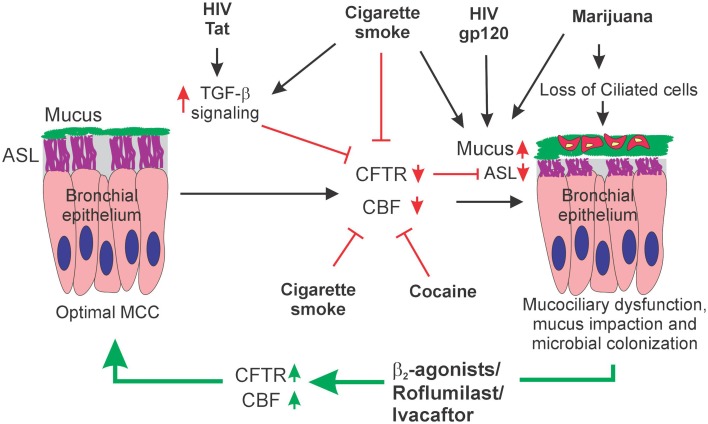Figure 2.
Schematic model of HIV and substance abuse induced Mucociliary dysfunction. HIV Tat and Cigarette smoke can inhibit CFTR biogenesis and function. HIV Tat increases TGF-β1 mRNA levels with a corresponding decrease in CFTR mRNA. Cigarette smoke can suppress CFTR biogenesis by TGF-β1 signaling or directly inhibit CFTR function by trapping surface CFTR in aggregosomes. Cigarette smoke, marijuana and cocaine can also inhibit the Ciliary component of MCC by decreasing CBF or ciliostasis (by cocaine). Marijuana smoking can lead to a loss of ciliated cells in the airway epithelium. The effects of these drugs on the ciliary component can synergize with the effects of HIV Tat mediated suppression of CFTR leading to a pronounced suppression of MCC. A combination of HIV gp120, Cigarette smoke and/or Marijuana can also promote mucus hypersecretion in the milieu where CFTR function is already attenuated by Tat and cigarette smoke leading to Dysregulation of all the principal components of the MCC system. Dysregulation of one or more components of the MCC system will lead to mucus impaction and microbial colonization. Pharmaceutical drugs that increase intracellular cAMP by either activating cyclase or inhibiting phosphodiesterase when used in combination with CFTR potentiators like Ivacaftor can restore one or more components of the MCC and repair the mucociliary dysfunction.

